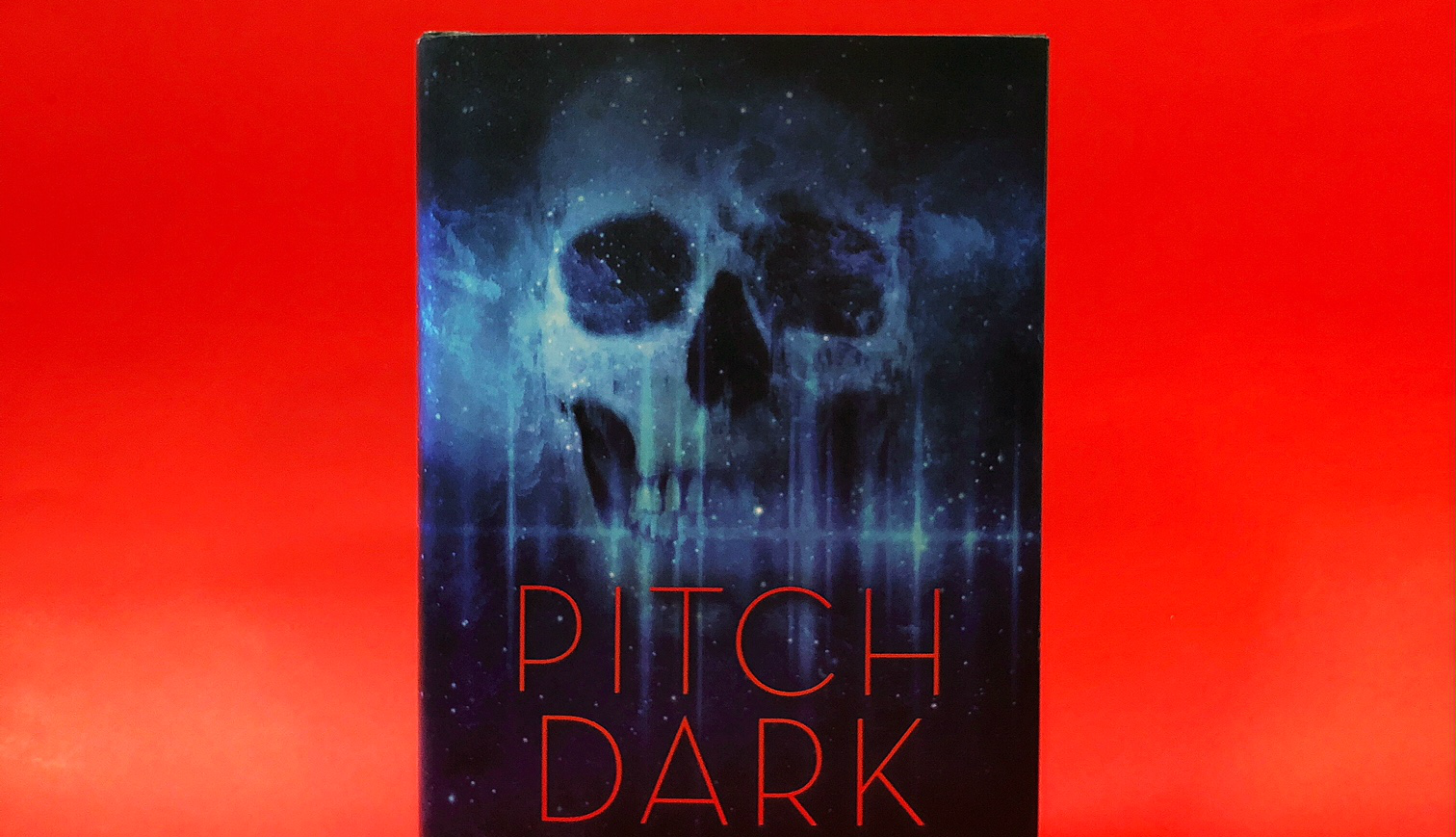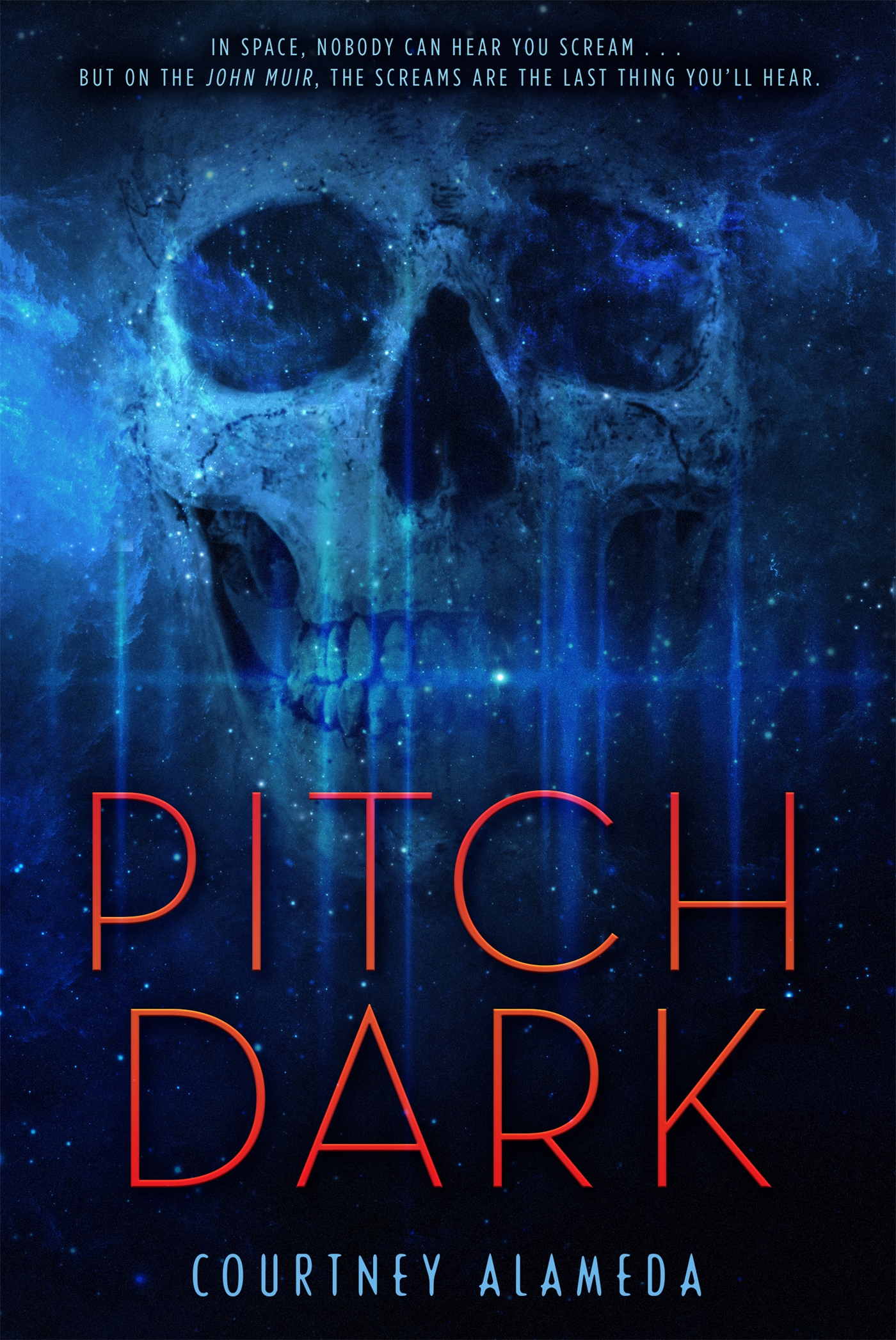The Politics of PITCH DARK
February 28, 2018 | 3:00 PM
The Politics of PITCH DARK
By Courtney Alameda
If there’s a line in Pitch Dark that matters more than any other, it’s this:

Now, those aren’t my words; the saying comes from Chiapas, Mexico, where Zapatista rebels used it as a rallying cry against a government they considered oppressive and dependent on ideals instilled by Mexico’s Spanish colonizers. I stumbled across it while researching Mexican history for Pitch Dark, and realized that it encapsulated everything I wanted this book to say in under fifteen words.
There are a lot of actors in Pitch Dark working to bury someone (or something) and/or silence someone’s voice. On the macro level, for example, Pitch Dark is an ecoterrorist organization that has spent 400 years trying to annihilate humanity for the destruction of the planet Earth. It was Pitch Dark that jettisoned ships like Tuck Morgan’s into the depths of space, leaving hundreds of thousands of people stranded without hope or salvation.
On the micro level, one of the book’s protagonists, Laura Cruz, is being literally oppressed by a rival family of historians and archeologists. The Smithsons have implanted a subjugator in Laura’s throat, a device that allows them to issue her short-term commands and control her behaviors. They intend to use her as an unwilling agent to undermine her family’s vast legacy, allowing the Smithsons to seize the Cruz family’s historical collections for their own.
Both Laura and Tuck are forced into situations in which they are deprived of their agency and their power. But the story doesn’t really begin until Laura begins to rise from the dirt the Smithsons buried her in, growing in skill, strength, and confidence until she becomes an unstoppable force for good. Her courage inspires others to join the fight, including Tuck. And that’s the beauty of the saying “They tried to bury us, but they didn’t know we were seeds”—it implies that no matter what the oppressor does, the oppressed will rise from deep earth darkness (or in this case, deep space) and find or fight their way back into the light.
And while these words are crucial to Pitch Dark’s themes, they also became central to my own story. It’s no secret that I finished this novel in the midst of the 2016 U.S. election, during which my Latinx family and forebears—and Laura’s family, too—were labeled as “rapists” and “murderers” by a major party candidate. In the days that followed, Pitch Dark became a rebuttal of those words. This novel asked me to stretch into places I’d heretofore been uncomfortable going; to not just tell a good story, but a good story that pushed back against a toxic, demeaning narrative about Mexican people. This novel helped me to grow as a writer, an artist, and as a human being in ways I hadn’t imagined a project could.
No matter what difficulties you are facing in your life, remember—you are a seed. Greatness lies inside you. It takes strength to push through the soil, but you were never meant to lie dormant.
You were meant to grow.

Pitch Dark by Courtney Alameda
Tuck has been in stasis on the USS John Muir, a ship that houses Earth’s most valued artifacts—its natural resources. Parks and mountains are preserved in space.
Laura belongs to a shipraiding family, who are funded by a group used to getting what they want. And they want what’s on the Muir.
Tuck and Laura didn’t bargain on working together, or battling mutant aliens who use sound to kill. But their plan is the only hope for their crews, their families, and themselves.
In space, nobody can hear you scream . . . but on the John Muir, the screams are the last thing you'll hear.




